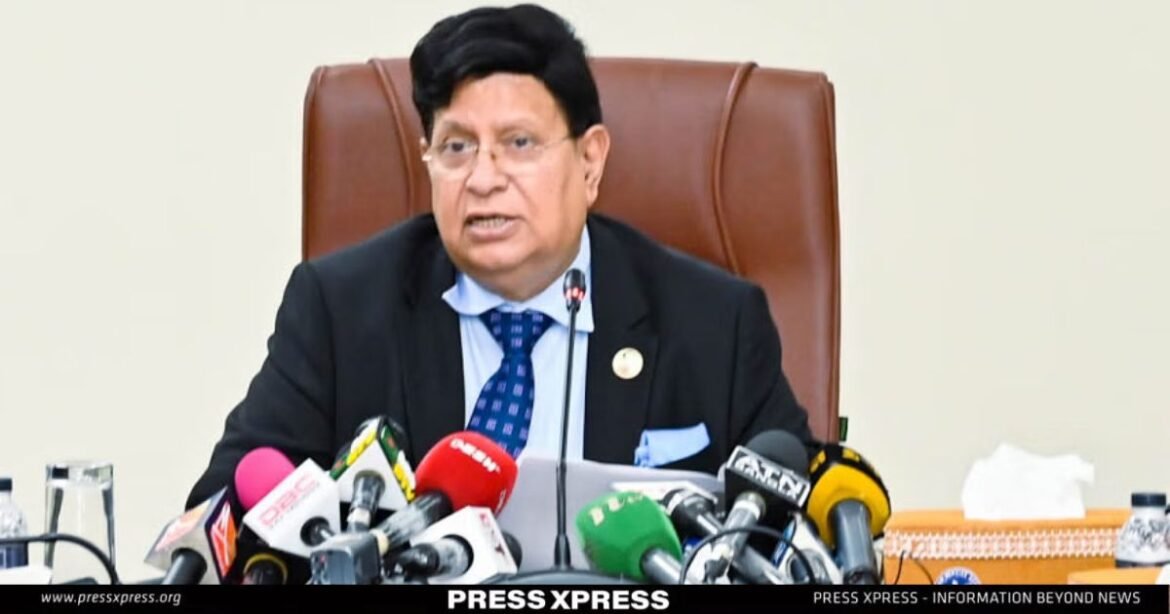Key highlights
- Bangladesh’s call for support from the UN transcends mere assistance
- Aspires for peace, justice, inclusivity, and prosperity
- Highlights the global significance of the Rohingya crisis and Bangladesh’s humanitarian efforts
- Foreign Minister appeals for UN backing Against pre-poll political pressures
In the ahead of the election, Bangladesh has informed the United Nations that Prime Minister Sheikh Hasina is firmly committed to conducting a free and fair election. However, she strongly opposes the opposition’s recurrent use of demonstrations that result in the burning of public and private properties and endangering lives.
This appeal, spearheaded by Foreign Minister AK Abdul Momen, was articulated in a formal letter addressed to Earle Courtenay Rattray, the chief aide to the UN secretary-general. The missive, dispatched last month (November 2023), was formally submitted to the executive office of UN Secretary-General Antonio Guterres by Bangladesh’s permanent mission to the UN.
“We anticipate the United Nations system, comprising its secretariat, agencies, and country offices, will actively engage in constructive collaboration to support Bangladesh in its unwavering journey towards development,”
Foreign Minister expressed.
The urgency of this plea is heightened by persistent calls, particularly from Western entities, advocating for a transparent, equitable, and participatory election slated for January 7 next year (2024).
Democratic Values
At the heart of Bangladesh’s commitment to democratic principles stands Prime Minister Sheikh Hasina, whose unwavering dedication to upholding the people’s rights was spotlighted in the communication to the United Nations. Emphasizing her tireless efforts, Foreign Minister Momen reiterated Hasina’s pivotal role in ensuring fundamental rights such as voting accessibility, food security, and a decent standard of living for all citizens. Under her leadership, Bangladesh has overseen thousands of elections across various tiers of governance, with the overwhelming majority recognized as free and fair, showcasing the nation’s commitment to a robust democratic process.
“Bangladesh is a leader in upholding democracy, human rights, justice and human dignity. It is the only country in the world that shed 3 million lives to establish democracy, human rights and justice,” he said,
Bangladesh’s Firm Resolve in Protecting Human Rights
The letter also emphasized Bangladesh’s steadfast commitment to championing human rights, both within its borders and on the global stage. Expressing confidence in the UN’s continued partnership, Bangladesh reiterated its aspiration for a future characterized by peace, justice, inclusivity, and prosperity for all. Acknowledging the nation’s historical sacrifices in the pursuit of democratic ideals, the communication emphasized Bangladesh’s unparalleled commitment to democracy, human rights, and justice. The nation’s proactive role in maintaining international peace and security through peaceful means was accentuated, reaffirming its stance as a loyal advocate for justice and human dignity.
As Bangladesh prepares for its electoral process, the call from the United Nations for peaceful, credible, and inclusive elections resonates strongly. Addressing the Rohingya crisis, Haq commended the government and people of Bangladesh for their generosity towards the refugees fleeing persecution. He expressed the UN’s hope for this compassionate support to persist, highlighting the ongoing humanitarian efforts by Bangladesh.
However, when questioned about Bangladesh’s membership in the Human Rights Council, Haq refrained from commenting, stating that the decision regarding membership lies solely with the member states of the Council. Journalist Lovlu Ansar highlighted Bangladesh’s unique display of humanity by providing shelter to over a million Rohingya refugees. Ansar highlighted Prime Minister Sheikh Hasina’s efforts, lauding her commitment to humanitarian causes.
Furthermore, Ansar mentioned that these groups have suggested the supervision of Bangladesh’s upcoming parliamentary election by the United Nations. However, Bangladesh has already pledged to conduct fair elections, affirming its commitment to upholding democratic principles.
Towards a Collaborative Future
Bangladesh’s call for support from the UN transcends mere assistance; it seeks a dedicated alliance crucial for the nation’s democratic evolution and the welfare of its people. As the global community observes these developments, Bangladesh awaits the UN’s steadfast commitment to navigating these critical times, ensuring that democratic values and progress remain at the forefront of the country’s political journey. The onus now lies with the United Nations to respond to Bangladesh’s plea for collaborative backing, affirming the significance of democratic ideals in shaping the nation’s future.
Prime Minister Sheikh Hasina’s recent emphatic call for the swift resolution of trials related to the BNP-Jamaat arson attacks underscores the government’s commitment to upholding justice and the rule of law in Bangladesh.
Asserting Bangladesh’s stance as a beacon for democracy, human rights, and justice, Momen emphasized the country’s active role in promoting international peace and security through peaceful means. He reiterated Bangladesh’s expectation of continued cooperation from the UN system in its pursuit of political and socio-economic development.
The historical context of political violence and systematic attacks highlights the urgency of ensuring accountability for past atrocities and preventing future incidents. Sheikh Hasina’s dedication to her country’s founding principles of justice and human rights represents essential steps towards a more peaceful and democratic future for Bangladesh.


